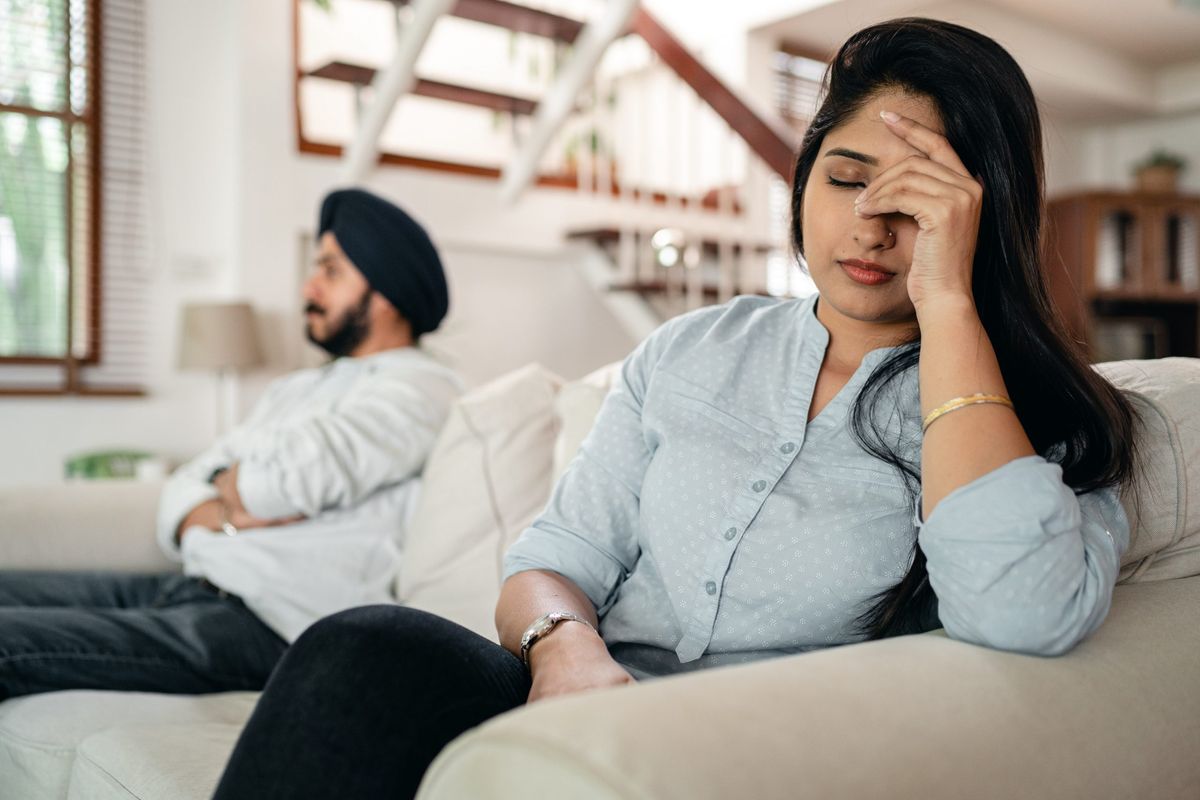How to reduce tensions at home during COVID-19

A few minutes every morning is all you need.
Stay up to date on the world's Headlines and Human Stories. It's fun, it's factual, it's fluff-free.
For months, millions of people have been isolating at home in order to minimize, and hopefully cease, the spread of coronavirus and COVID-19. Many of us living with family members have realized sharing a space with the same people for long periods of time is no piece of cake. It can feel suffocating and create tension – sometimes the walls might feel like they are closing in.
If you are experiencing tensions at home among loved ones due to cramped quarters and seeing just a bit too much of one another, we’ve compiled some tips for easing the stress and encouraging healthy coping and communication.
However, it’s important to recognize that there’s a big difference between tension and abuse. We also have tips on recognizing the signs of abuse and getting help if you are a victim of domestic violence – an epidemic that has shown to worsen during times of crisis.
Communicate and express yourself
If everyone communicated (in a healthy, productive way) how they really felt, most conflicts could be avoided. It may sound cliché, but communication really is the solution to many interpersonal problems.
Living with other people requires understanding and compromise. If you don’t like something or wish it would be different, it’s important to communicate your feelings. Many times family members and people at home are willing to compromise and can be understanding of your point of view.
Sometimes all you need is for someone to hear you out. Talking to someone outside of your home may be therapeutic, and it’s kind to offer a listening ear, too. We often don’t know what someone may be going through during these times, so it is helpful to be considerate and compassionate.
Manage your expectations
Everyone is going through a tough time, so it helps to maintain reasonable expectations and standards you may have of someone or something. It’s perfectly fine to feel uncertain and lost during these times, because not everything will go as expected – and that’s okay. Don’t blame yourself or others for things outside of your control
With the economy in a recession due to the pandemic, there may be fear and stress over unemployment and financial worries. Try to be compassionate about these issues, and don’t panic if things aren’t going exactly the way you want them to right now. Learn to hold other people and yourself to reasonable standards.
Accept what you can’t control
It’s uncertain for how many more days, weeks or months we may be at the mercy of this pandemic, and no, there’s not much we can do about it aside from staying safe and remaining patient. Try not to fixate on things that are out of your control. We aren’t sure when this dystopian-eque phase will come to an end, but we can lessen the fallout by doing our part to stay safe and take preventive measures – which realigns our focus on things within our control.
Create a personal spot
Understandably, all of us need some personal time to ourselves. So, it makes sense to create a personal space to use when we need to escape from the usual commotion that goes on in the household. Make the space uniquely yours by personalizing it with elements you find stress-relieving and calming. That way, if you are ever feeling down, you have an oasis that will help you to recharge.
Recognize abuse
Sadly, these unprecedented times have also exacerbated another global crisis – domestic violence. Many victims have been trapped at home with their abusers. With no escape and a limited number of resources for these victims, domestic violence cases have surged worldwide.
Medical News Today has reported a vast increase in domestic violence reports all over the world. At the original epicenter of the outbreak, a police station in Wuhan reported a threefold increase in complaints. The UK’s largest domestic charity’s helpline has reported a 700 percent increase in calls. In Cyprus and Singapore, calls to helplines have also risen by almost a third. According to The Atlantic, a hospital in Texas reported six physical abuse cases against children in only a week, when it typically experiences eight a month on average.
It’s important not to trivialize abuse. Abuse is never okay, and it’s never your fault. You can read more about how to recognize the signs of abuse by consulting expert resources by HelpGuide or this guide by Harvard Women’s Health Watch.
Sometimes, it may be safer to signal for help without drawing the attention of the abuser if they are nearby. One method of doing this has been developed for virtual calling, which is especially helpful during this time. You can see an example of this signaling here.
If you think you, or someone you know is being abused, you can also call the National Domestic Violence Hotline at 1−800−799−7233 or text LOVEIS to 1-866-331-9474. If you or someone you know is in danger or experiencing an emergency situation, dial 911.
Have a tip or story? Get in touch with our reporters at tips@themilsource.com




Comments ()